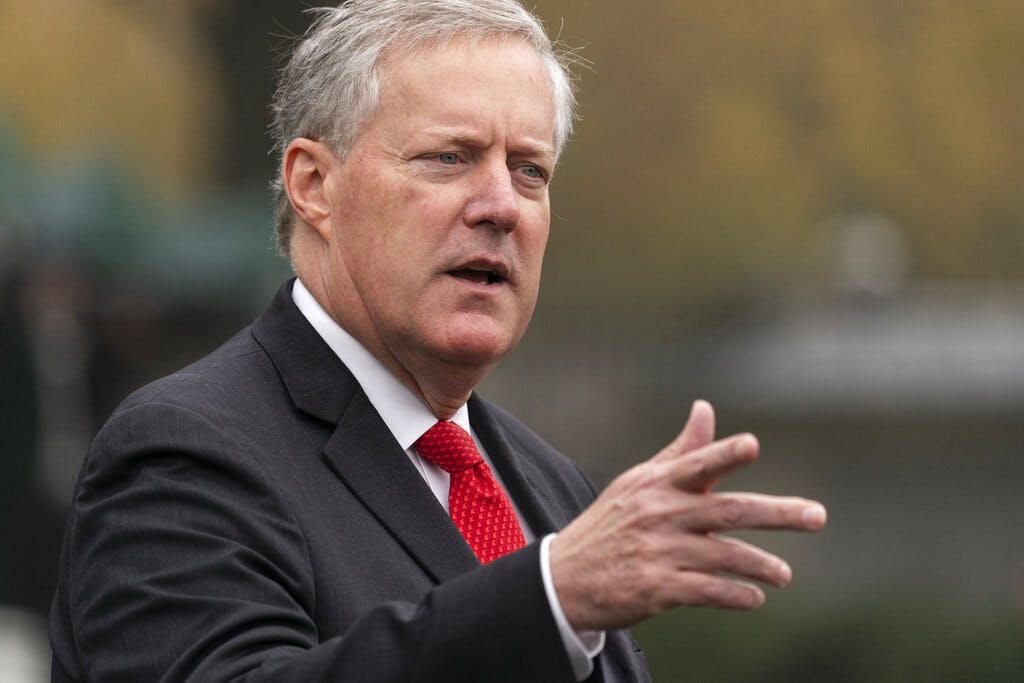Mark Meadows Touches the Constitutional Quick
Trump’s ex-chief of staff cites the supremacy clause to argue that his advice to the 45th president lies beyond the reach of the laws of Georgia.

Whatever else one can say about the gathering prosecution against President Trump and his camarilla, one thing is clear: America is getting a breathtaking education in constitutional thinking. The latest lesson — and in many ways most impressive so far — is the brief filed by Mr. Trump’s erstwhile chief of staff, Mark Meadows. In moving to dismiss the case against him in Georgia, he cites the Constitution’s supremacy clause.
It’s hard to think of a slab of constitutional bedrock more basic than the supremacy clause. It ordains that “This Constitution, and the Laws of the United States which shall be made in Pursuance thereof shall be the supreme Law of the Land; and the Judges in every State shall be bound thereby, anything in the constitution or laws of any state to the contrary notwithstanding.”
It is unclear how this tack will prosper in the Northern District of Georgia, not far from Chickamauga. Mr. Meadows, though, has adduced plenty of precedent from high courts, including the 11th Circuit, which covers Georgia. He has taken a whisk broom to the legal detritus that has obscured one of the Constitution’s most famous clauses. Mr. Meadows fends off prosecutor Fani Willis’s charges against him — racketeering and pressuring a public official — with a big shield.
Mr. Meadows cites the supremacy clause in arguing that the actions his federal duties required him to take cannot be preempted or blocked or criminalized by state prosecution. As our A.R. Hoffman reports in these pages, “as far back as McCulloch v., Maryland, in 1819, the high court has held that states cannot enact laws that ‘retard, impede, burden, or in any manner control’ federal officers in executing their duties.”
Georgia can be counted on to argue that the matters on which Mr. Meadows was indicted were not lawful duties, federal or otherwise. He is accused of racketeering to overturn the 2020 election results. And to have interfered in the vote count in the Peach Tree State. Not even the president himself would have federal authority to do such things, it is possible to imagine Georgia arguing. It is also possible to imagine an appeals court going either way on this head.
The one-time chief of staff argues that Ms. Willis’ case “threatens the important federal interest in providing the President of the United States with close, confidential advice and assistance, firmly entrenched in federal law for nearly 100 years.” For the autonomy of federal law against state encroachment he cites, among other authorities, a seminal law review article authored two decades ago by Justice Elena Kagan, defending presidential prerogatives.
It is hard to imagine that President Trump, although his lawyers have told him to stop talking, is not riveted by the filing made by his former chief of staff. The principle that state criminal law cannot interfere with federal employees who are executing federal law cuts to federalism’s core. It is just as available to presidents as it is to their aides. Mr. Meadows, though, faces the challenge of showing that his post-election activities bore a legitimate “nexus” to his duties.
Mr. Meadows also wants to remove his case to federal court. By asking whether Georgia’s efforts to enforce its laws are trumped by the Framers’ insistence on the primacy of federal action, he is evoking a debate that has beguiled Americans since the days of John Calhoun and Fort Sumter, not to mention the conflict over states’ rights and Jim Crow laws. He has touched the constitutional quick — the very clause that binds us together as one nation.

